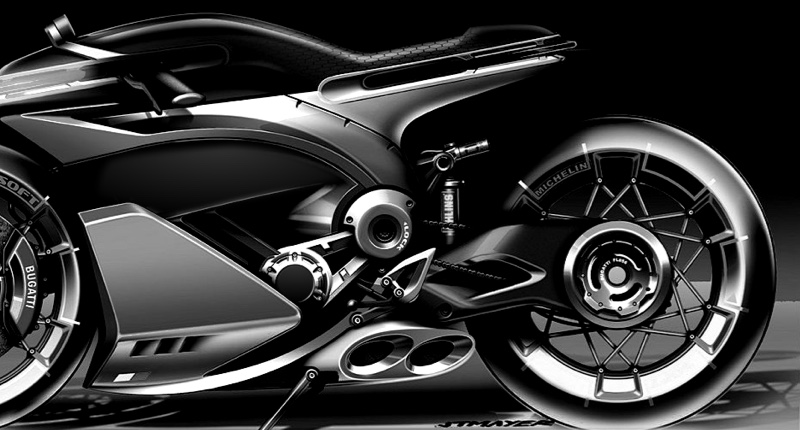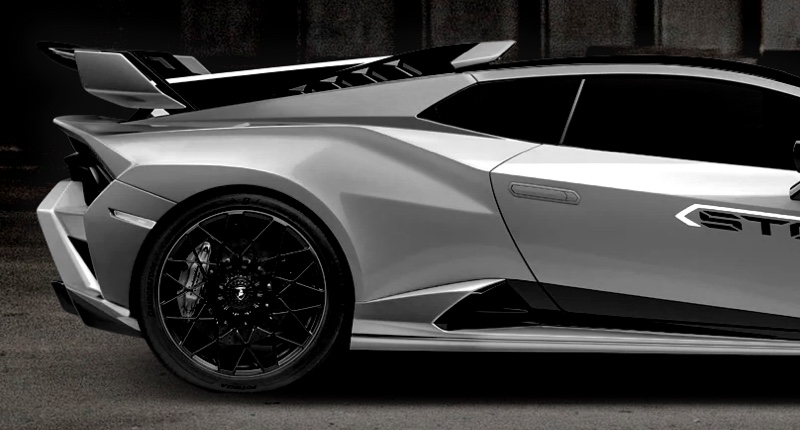Carbon Fibers: What Are They and Why Are They Everywhere? (Production, Properties, and Uses Explained)
Discover the world of carbon fibers! Learn about their production, unique properties, and widespread applications. Supreem Carbon explains it all in this comprehensive guide. #carbonfibers #carbonfiberproduction
Imagine a material that's incredibly strong and stiff, much stronger than steel, yet surprisingly lightweight—lighter than aluminum. It doesn't rust, can handle high temperatures, and is shaping industries from aerospace to sports. This isn't science fiction; it's carbon fiber.
While you might not always see the carbon fiber itself (it's often hidden inside composite materials), it's a key ingredient in many high-performance products we use or rely on every day. But what exactly is this material, how is it made, and why is it so special? Let's break it down in simple terms.
The Amazing Properties of Carbon Fiber: What Makes It So Strong and Light?
Carbon fiber gets its reputation as a "super material" from a unique combination of characteristics:
- Incredible Strength and Stiffness: This is its most famous trait. Carbon fiber has extremely high tensile strength, meaning it's very hard to pull apart. It's also very stiff (high modulus), resisting bending and stretching. Think of it as having the strength of steel but without the weight penalty.
- Remarkably Lightweight: Compared to traditional engineering materials like steel or aluminum, carbon fiber has a much lower density. This lightness is a massive advantage in applications where reducing weight is critical, like vehicles and aircraft, leading to better fuel efficiency and performance.
- Corrosion Resistant: Unlike metals, carbon fiber doesn't rust or corrode when exposed to moisture or many chemicals. This makes it ideal for harsh environments and ensures a longer lifespan.
- High Temperature Tolerance: Carbon fiber can withstand significantly high temperatures before degrading, which is important in demanding applications.
- Fatigue Resistance: It can endure repeated stress cycles better than many metals, making it durable over time.
In essence, carbon fiber offers a winning combination of being incredibly strong and stiff while being exceptionally light and durable.
How is carbon fiber made? The 'Recipe' Explained
Making carbon fiber is a complex process that involves transforming organic precursor materials into nearly pure carbon filaments. The most common starting material is a type of plastic fiber called polyacrylonitrile (PAN), though others like pitch can also be used.
The process typically involves several heating stages in special furnaces, often without oxygen to prevent the material from burning:
- Stabilization (Pre-oxidation): The precursor fibers are heated at lower temperatures (around 200-300°C) in air. This rearranges the chemical bonds and stabilizes the fiber so it doesn't melt or fuse in the next high-temperature step.
- Carbonization: This is the crucial step. The stabilized fibers are heated to very high temperatures (typically 1000-3000°C) in an inert atmosphere (like nitrogen). At these extreme temperatures, non-carbon atoms (like hydrogen, nitrogen, and oxygen) are driven off, leaving behind long chains of carbon atoms.
- Graphitization (Optional): For some high-performance applications, the fibers are heated to even higher temperatures (above 2000°C) to further align the carbon atoms into a more ordered, graphite-like structure, increasing stiffness.
The result is incredibly thin filaments, often just 5-10 micrometers in diameter (much thinner than a human hair). These filaments are then gathered into bundles (called tows) and can be woven into fabrics or combined with resins to form carbon fiber composite materials, which is the form we most commonly encounter.
Where Do We See Carbon Fiber? Real-World Applications
Thanks to its remarkable properties, carbon fiber is used in a wide and growing range of applications:
- Aerospace: This was one of the earliest and most significant uses. Large parts of modern aircraft, including wings, fuselage sections, and tail assemblies, are made from carbon fiber composites. This drastically reduces weight, leading to improved fuel efficiency and increased payload capacity.
- Automotive: High-performance cars, racing vehicles (like Formula 1 cars), and increasingly, electric vehicles use carbon fiber for chassis components, body panels, and structural parts. It enhances speed, handling, and energy efficiency by reducing overall weight.
- Sports Equipment: Carbon fiber is a game-changer in sports. Bicycle frames, tennis rackets, golf club shafts, fishing rods, rowing shells, and hockey sticks all benefit from its combination of lightness, strength, and stiffness, allowing for better performance.
- Civil Engineering: Carbon fiber sheets or wraps are used to strengthen and repair existing concrete structures like bridges and buildings, adding significant strength without adding much weight.
- Medical: It's used in prosthetic limbs (due to being lightweight and strong) and in medical imaging equipment like X-ray tables (because it's transparent to X-rays).
- Other Industries: Drones, wind turbine blades, high-pressure vessels, and high-end photography equipment also utilize carbon fiber for its superior properties.
Why Isn't Everything Made of Carbon Fiber... Yet?
Despite its many advantages, carbon fiber composite material is not used everywhere. The main reasons include
- Cost: The production process is complex and energy-intensive, making carbon fiber significantly more expensive than materials like steel or aluminum.
- Manufacturing Complexity: Shaping carbon fiber composites into final parts requires specialized manufacturing techniques, which can be more complex than working with metals.
- Recycling Challenges: Effectively recycling carbon fiber composites is still an area of ongoing research and development.
Conclusion
Carbon fiber is a truly remarkable material that has moved from specialized aerospace applications into many aspects of our lives. Its unique blend of high strength, stiffness, and incredibly low weight makes it indispensable for performance-critical applications where every gram matters.
While challenges like cost and manufacturing complexity remain, ongoing research and advancements are making carbon fiber more accessible and opening up new possibilities. Understanding carbon fiber means understanding a key material that is shaping the future of engineering, transportation, sports, and beyond. Though often unseen, this lightweight giant is playing a heavyweight role in pushing the boundaries of what's possible.

Ducati monster 937 and BM S1000RR 2016+ new arrivals released!

What are the Applications of Carbon Fiber in BMW Cars

Xiaomi SU7 Aerodynamic Carbon Fiber Body Kits Released by Supreem Carbon.

Unveiling Carbon Fiber: 10 Surprising Truths and How It's Shaping Our Future

What does carbon fiber do for a motorcycle?

100% Carbon fiber dash panel and window door trims set for NSX
For Products
How can I get some sample?
Actually we dont provide the free sample to customer, you can place a sample order if need some parts.
Which surface could you provide for the carbon parts?
Gloss finish, matte finish, satin finish. Some color coating as the customer needs.
Are you parts have UV protected?
Absolutely! We use multiple layers of premium quality automotive clear (or matt) coats on our products, which ensure that they will remain super pretty for years to come.
For After-sales Service
Do you offer the fitting advice?
Of course! If you have any questions, please contact us on info@supreemcarbon.com.
For Facotry
Can I visit your company?
Of course, we are in QiaoTou Town, Dongguan City, Guangdong Province, China.

Lamborghini Urus Carbon Fiber Engine Bay Panel
Enhance the visual appearance of your Urus engine bay with these custom carbon fiber engine covers. 100% handmade and a 1:1 copy of the original part, which retains all OEM screw mounting points. Elevate your driving experience with this exquisite addition, showcasing unparalleled craftsmanship and enhancing the allure of your Urus’s engine bay.

Honda NSX Carbon Fiber Center Dash Panel Replacement

Volkswagen Golf R Mk8 Carbon Fiber Front Bumper Surrounds
We are committed to providing customers with the highest quality aerodynamic kits, just like this Volkswagen front bumper surround, which gives you a different visual experience. Not only are our products lighter than ABS, but they are also corrosion-resistant and have a UV-protective coating. 100% handmade, dry carbon autoclave process. It can directly replace original vehicle parts.

Yamaha R1/R1M Carbon Fiber Rear Fender Hugger Mudguard
Let’s Bring Your Carbon Fiber Ideas to Life
Have a question or inquiry about our carbon fiber composite products? Leave us a message here, and our team will get back to you promptly.
Whether you're interested in custom orders, technical specifications, or partnership opportunities, we're here to assist you.
Please fill out the fields above with your name, email address, and message.
© 2024 Supreem Carbon All Rights Reserved.





Facebook
Pinterest
LinkedIn
Instagram